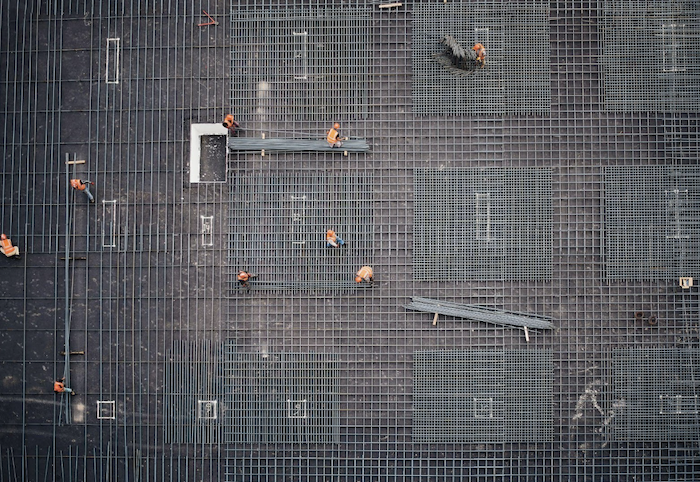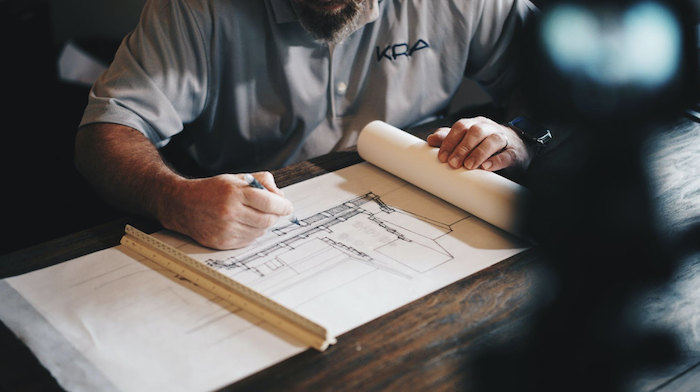
Tall skyscrapers, tourist attractions, factories, homes. Even infrastructure projects like roads and sewers. None of this would be possible without efficient and careful construction project management planning and construction managers. Construction project management plays a vital role in ensuring that all the buildings around us are built safely and on time. The goal of every construction project management is to complete the project, and the balancing of resources, finances, time, and feasibility plays a crucial role in its completion.
Construction project management functions very much like project management in many other industries. The fundamentals can be easily carried over from another industry to construction, but there are plenty of other roles and responsibilities that are unique to construction.
What does the construction project management team do?
The role of the construction project management team is to successfully oversee and build a building. Buildings come in many different types and scales. The most common types of construction projects are residential, commercial, roadway, industrial and heavy construction. Heavy construction refers to megaprojects that are oftentimes infrastructure-focused, like dams or flood control systems and facilities. Oftentimes, construction project management teams will specialize in one or two types of construction. Each type of construction type has its own unique challenges and opportunities.
After the management team confirms and signs a contract with a client for the erection of a building, it is time to get a general contractor for the actual construction of the building. They can choose to either put up a bid or let general contractors bid to build the project. This process is called a design, bid, and build contract. This is the most common form of construction business model as it allows stakeholders to search for the lowest prices. Alternatively, the design, build contract style means that the same company will handle both the designing and construction of the building itself. This option is uncommon due to the high amounts of upfront capital needed from the stakeholders and clients to construct the building.
Lastly, there are a few other responsibilities that the construction project management team will have to oversee and manage. The project team is required to handle the finance aspect of the project, meaning that they are responsible for generating a project’s estimated cost as well as assembling a project budget. They are also responsible for being the point of contact for clients, stakeholders, and construction workers to facilitate communications between all these different parties. Safety is another huge concern of construction project management, and thus they are responsible for the supervision of the work site and assessing any current and potential risks that can occur.
What difficulties do Construction Project Management teams face?
There are a few difficulties that a construction management team can face. Oftentimes, it is inadequate communication or poor budget planning that causes a delay in the completion of the building. It’s important that project management teams are able to keep up with the communications needed by a stakeholder to workers on-site, or vice versa. Another issue is the violation of OSHA’s guidelines, which can lead to your house being repossessed, or tearing down the place that needs replacing.
 The steps of construction project management
The steps of construction project management
There are many things to keep track of as the construction project management team. There are different stages of the project that the project management team can use to identify their next course of action.
In the first stage, a stakeholder will identify the design of their building and the list of suitable locations for the project. After also highlighting their expected time frame and getting their designs done by an architect or designer, the construction project management company will run a feasibility study for the project. This will evaluate whether the design and scale of the project can be done within the stipulated time frame and budget the client has. The prospective locations will also be examined to see if the location is suitable for the construction of the building. This process will repeat until the construction project management team finds the project to be feasible to complete.
The second stage will consist of setting up a bid for prospective general contractors and finding the most suitable one for the project. At this stage, the management team will also begin to generate a schedule for the project and identify milestones that can help stakeholders and the management team keep track of its progress. The general contractor will also identify specialists like electricians and plumbers, as well as general construction workers for the building.
In the third stage, construction will fully begin. At this stage, the project management team will have to supervise the safety and risk levels of the work site as well as ensure that there are sufficient resources for the construction. The team must also monitor the expenditure and ensure that it stays within budget, or request an increase in budget.
The fourth and fifth stages will happen once the construction is completed. The management team will inspect the building and identify any errors or defects and get them rectified. Once the building has passed muster, the building will be commissioned and then handed over to the client and occupancy will begin. Depending on the type of warranty you have agreed upon, the construction project management team will have different responsibilities. A contractual warranty will cover any defects in the building for a set number of days as agreed upon in the contract between the team and the client. An implied warranty is the minimum warranty that the project management team is obligated to provide based on local laws and regulations.
The last stage will happen when the management team has fulfilled all obligations as per the contract. An after-action review will be conducted to study and examine the aspects of the project and identify strong and weak points to continue and improve on.
Conclusion
An essential part of being a successful construction project manager is being able to effectively communicate between several different parties and stakeholders. Doing so will result in a smooth exchange of information between parties. Consider using team management software that allows everyone to be able to access them when needed.

